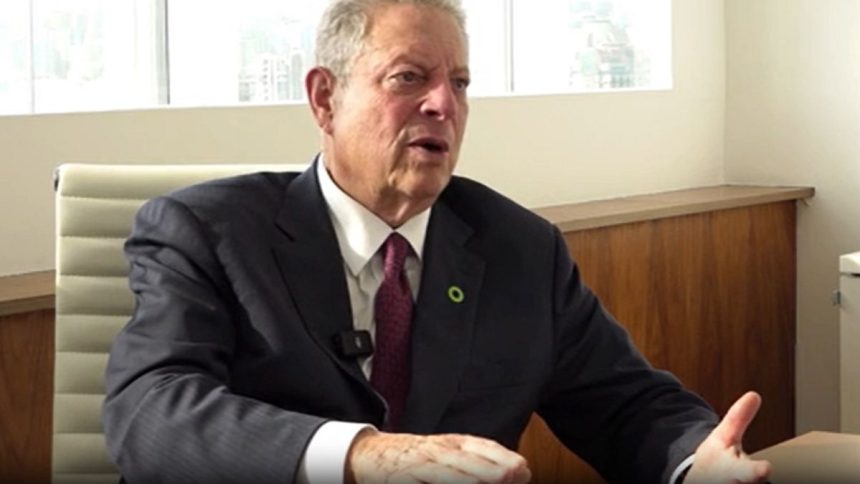“I think the process should be reformed,” Gore said of the COP summit process in an exclusive interview with Euronews in the Azerbaijani capital Baku.
“I think it’s absurd to have, for example, what we had last year with the CEO of one of the dirtiest oil companies on the planet serving as the president of the COP,” he said in reference to the 2023 climate summit in Dubai.
“It’s a direct conflict of interest,” he continued, arguing that the problem persists this year with Azerbaijan taking over the COP presidency.
“While the president of this COP was not the head of the oil industry, he is very much in sync with this country’s reliance on fossil fuels,” Gore said. “Ninety per cent of their balance of payments is coming from the sale of oil and gas.”
Mukhtar Babayev, appointed Azerbaijan’s minister of ecology and natural resources in 2018 after a career spanning two decades with the State Oil Company of the Azerbaijan Republic (Socar), was named in January to preside over this year’s COP.
- Who is Mukhtar Babayev? Azerbaijan appoints former oil exec as president of COP29 climate talks
Gore pointed to Russia, which had vetoed the idea of any EU country hosting the talks, as the driving force behind the selection of Azerbaijan, which falls within the broadly defined eastern European region that was in line for the presidency this year.
“As the loudest voice in this region of the world … it was really Russia that made this choice,” said Gore, whose climate activism since narrowly losing the US presidential election in 2020 saw him share the Nobel Peace Prize with the UN’s Intergovernmental Panel on Climate Change in 2007.
Gore spoke to Euronews shortly before hosting an event with the Climate Reality Project that he founded back in 2006 and which he still chairs.
“One of the reforms that I have proposed is to give the [UN] secretary general a say in who hosts the COPs, and not just leave it to allow voices like Vladimir Putin’s to determine who gets this one, and let the petrostates of the Middle East decide,” Gore said.
The former US vice-president, who served alongside President Bill Clinton from 1993 to 2001, also warned against relying on technological fixes to tackle the climate crisis, as average global temperatures climb steadily towards the limit of 1.5 °C above where they stood before the turn of the twentieth century.
Gore singled out carbon capture and storage (CCS), which typically involves pumping CO2 underground or below the seabed into depleted gas fields, a technology that is being promoted both in the US and in Europe under the EU’s Net Zero Industry Act.
- Green groups wary as EU bets on future carbon capture to meet climate targets
“They’ve been proven to be completely ridiculous and totally ineffective,” Gore asserted. “Of course, the fossil fuel companies want to pretend that that’s the solution – anything other than reducing the amount of fossil fuels that are burned or reducing their markets.”
Regarding the COP29 summit, surrounded as it is by diplomatic spats and criticism of the heavy presence of oil and gas lobbyists, Gore was clear on what outcome is needed in the area of climate finance – the focus of negotiations this year.
“If you look at the financing for the clean energy revolution as far as it has gone thus far, 85% of the financing has been from the private sector,” Gore said.
“The real problem is that developing countries who have not been able to participate very much…have to pay such high interest rates that they are walled off from access to the private capital from investors around the world.”
The summit in Baku is scheduled to run until 22 November, by which date it is hoped that the nearly 200 countries participating will agree a ‘new collective quantified goal’ for financing the energy transition and climate adaption in the developing world.
Euronews










